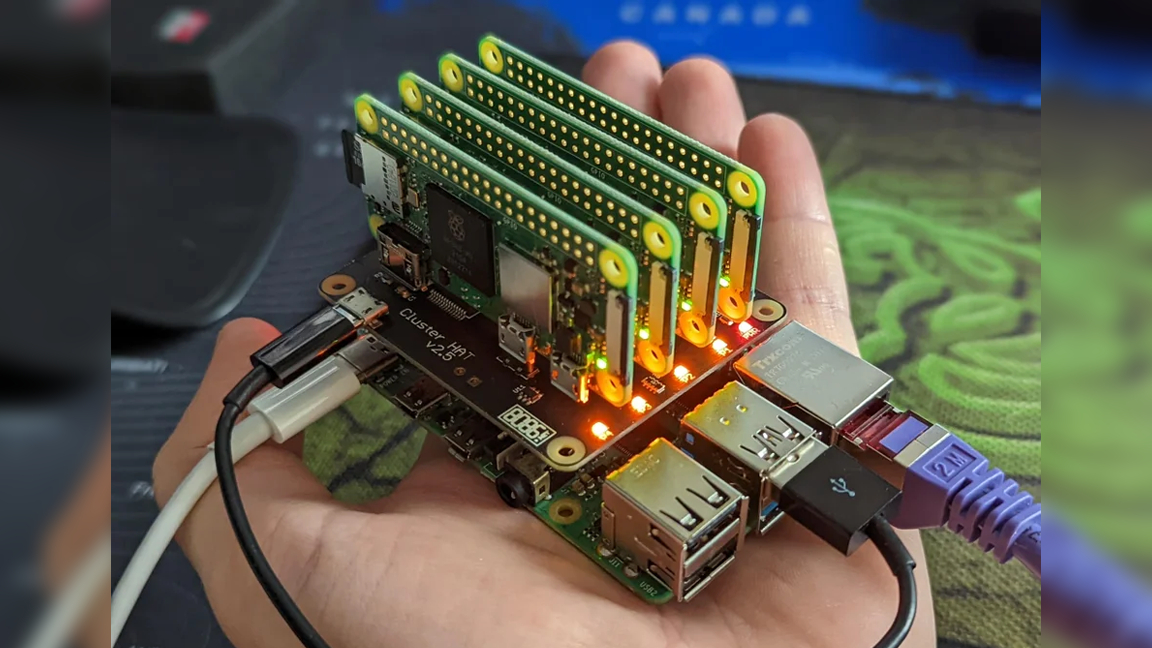Raspberry Pi Zero 2 W Cluster Stacks Four Boards

Raspberry Pi clusters are a fun way to experiment without investing in full-sized equipment. But why make a cluster with a regular Pi when you could take things even smaller with a Pi Zero? That’s exactly what maker Ivan Kuleshov has done with this impressive Raspberry Pi Zero 2 W cluster project.
The project relies on a Cluster HAT and Raspberry Pi 4 with 3GB of RAM. If that caught your attention, it should—the Pi 4 doesn’t come with a 3GB edition. This is a custom mod from Kuleshov who apparently removed the original 8GB RAM module from the Pi 4 and soldered it to a CM4.
Kuleshov explained that the Pi Zero 2 W boards are connected via a USB socket. Software-wise, he’s experimenting with a system called OpenFaaS. This is a serverless tool that lets users manage things like Python functions across clusters.
Perhaps the most glaring question about this project is, what’s it for? Use cases for a Pi Zero 2 W cluster are admittedly limited, but the best Raspberry Pi projects are the ones you can make, not necessarily should make. So when asked what the purpose of the project was, Kuleshove responded, “For contemplation.”
To get a closer look at this creation, check out the original thread shared on Twitter and be sure to follow Kuleshov for more cool creations.
Get Tom's Hardware's best news and in-depth reviews, straight to your inbox.

Ash Hill is a contributing writer for Tom's Hardware with a wealth of experience in the hobby electronics, 3D printing and PCs. She manages the Pi projects of the month and much of our daily Raspberry Pi reporting while also finding the best coupons and deals on all tech.
-
samopa Have too much money and too many free time ;)Reply
Anyways it is still good project, keep that good work. -
Spion-Hans Looks cool yah, but in my opinion a waste of ressources. Other have to wait weeks toll month to get one per order, and this project consumed 4 Pi 2 W. And then it has no real usecase ...Reply